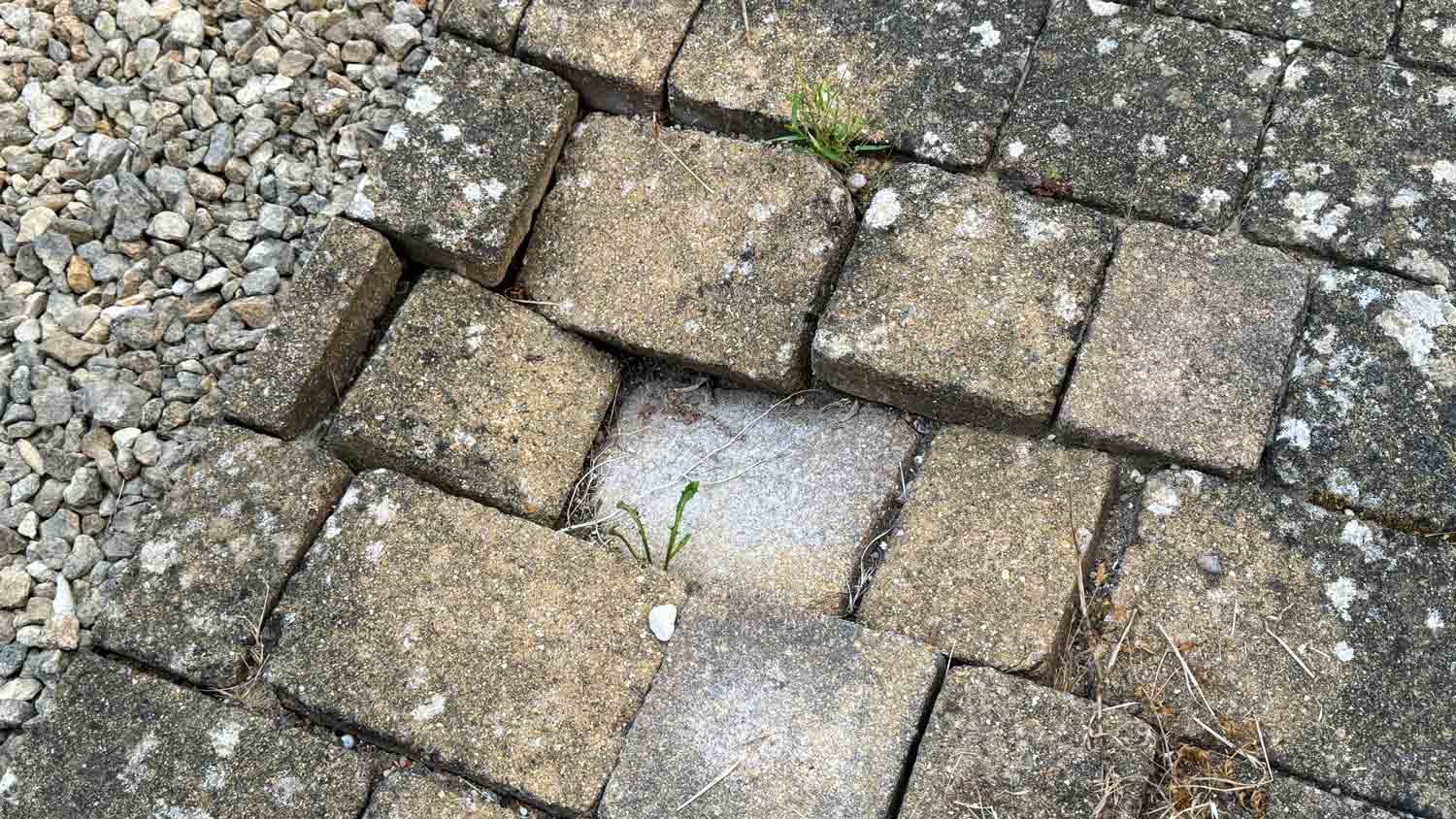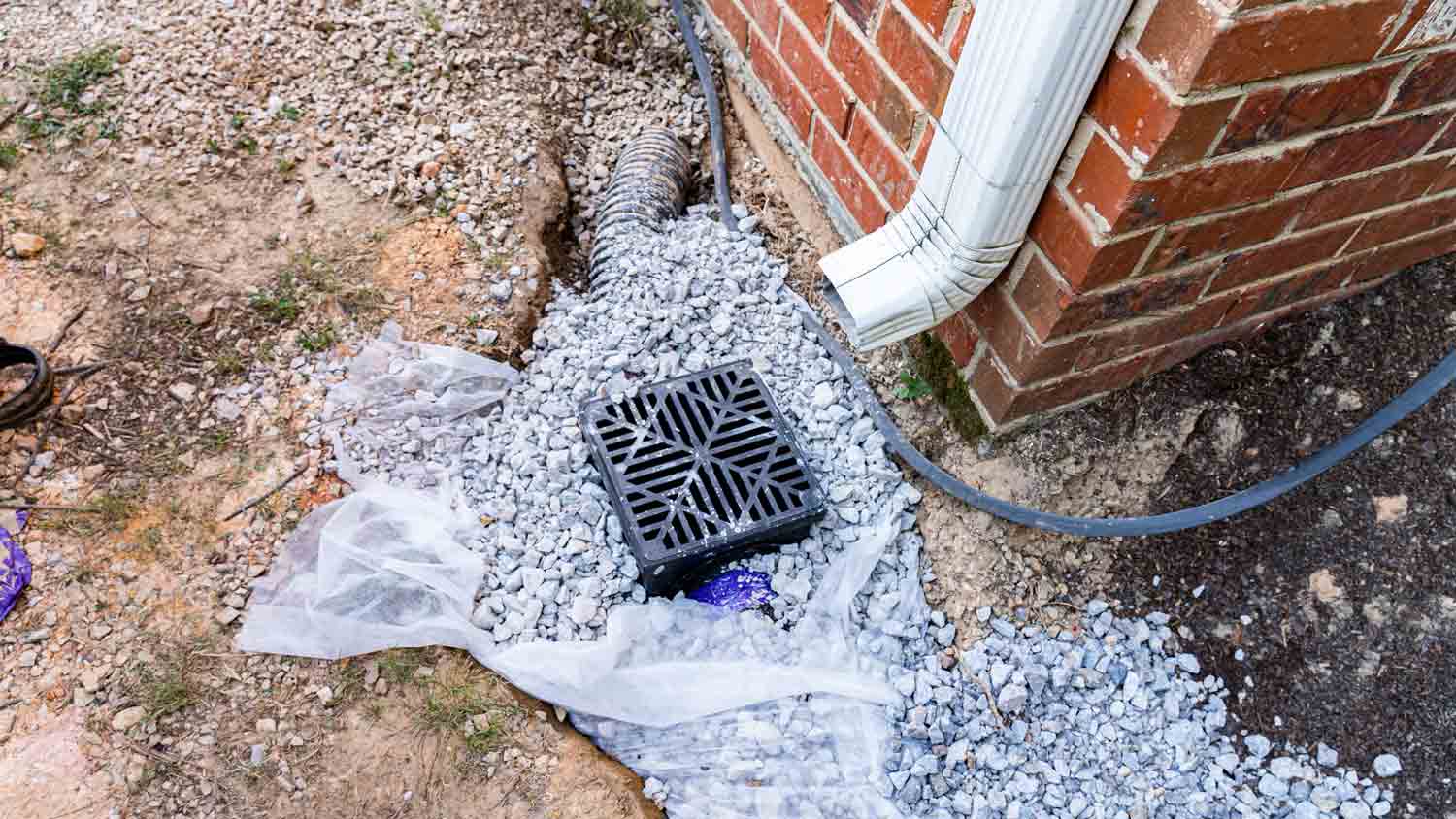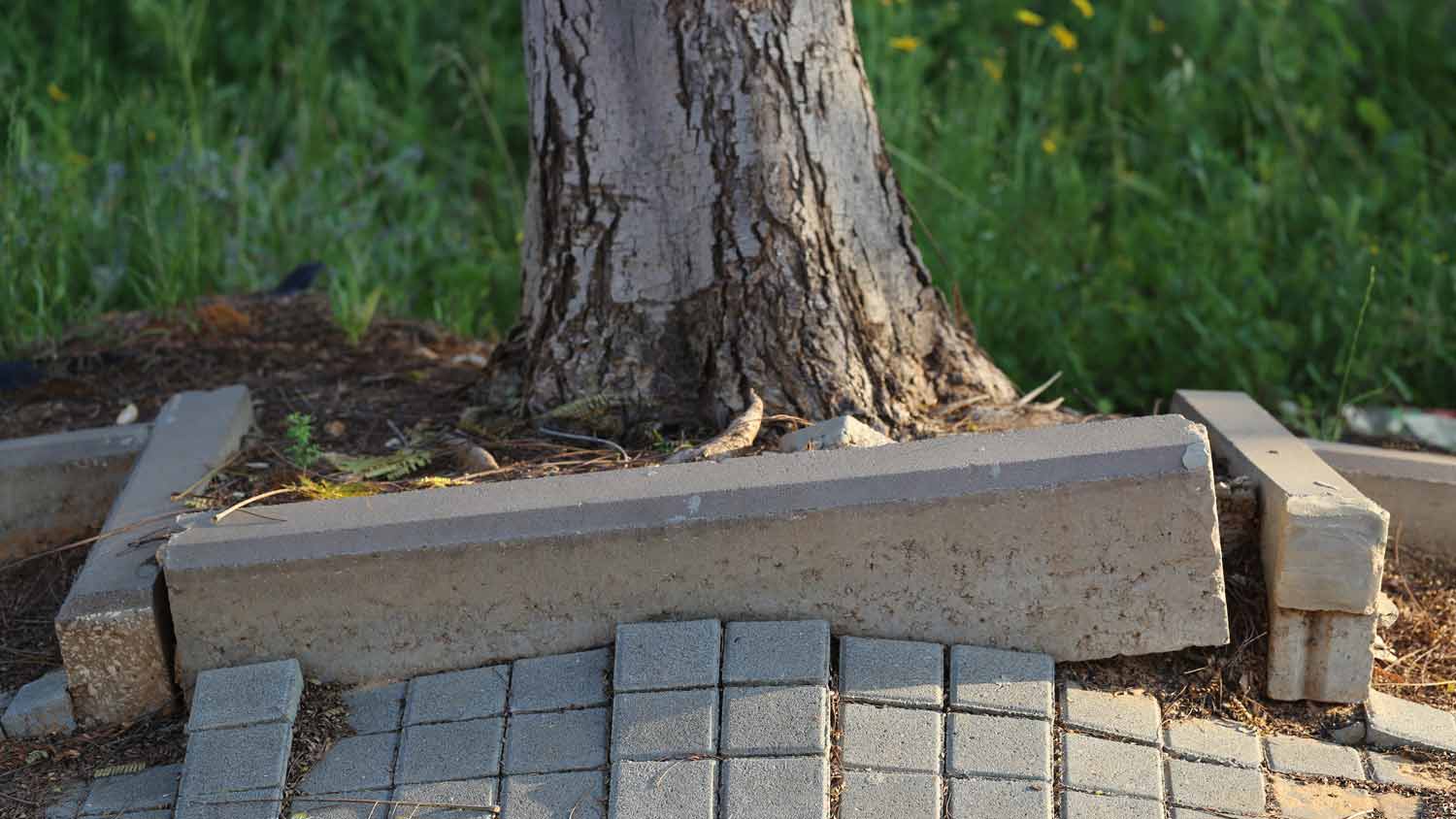Sinking Concrete: 8 Causes and How to Fix It
Get rid of that sinking feeling about your foundation


Many things can cause concrete to sink, so it’s best to hire a professional to ensure you’re fixing the underlying problem.
Left unchecked, sinking concrete can lead to severe structural damage that costs tens of thousands to repair.
Ensuring you have a gutter system that drains away from your foundation is one of the best ways to avoid sinking concrete.
Your entire home relies on the concrete foundation beneath it, so seeing that concrete sinking into the ground can be jarring. This problem can cause major structural damage rather quickly since your structure relies on the foundation for even, level support. If you’re noting problems, use this guide to learn what causes concrete to sink and what you’ll need to do to fix the issue, depending on the underlying cause.

1. Poor Soil Quality
Your concrete foundation is only as supportive as the soil around it, so if the ground under your concrete is overly sandy or clayey, this could be the root of your problem. Sandy soil can wash away and erode easily as water drains through it, leaving the foundation without the necessary support. Clayey soil can expand when it gets saturated and then contract as it dries, creating instability under your foundation. In both cases, you could experience sinking concrete.
The best solution to this issue is to ensure you have good drainage on your property. Install gutters and downspouts to direct water away from your foundation, grade the soil away from your home, and consider having a professional install a French drain around your home. You may also need mudjacking or polyjacking to raise your foundation back up into place.
2. Inadequate Drainage

Unfortunately, even if you don’t have poor soil quality on your property, improper drainage can still cause concrete to sink and lead to foundation damage over time. For example, if you don’t have a gutter system, the rain falling on your roof will drip down and soak into the soil around your foundation. That excess water increases the chance of soil getting washed away or expanding in response to the excess moisture. Soil movement from overexposure to water can lead to concrete instability, especially for exposed concrete driveways.
The easiest solution to this is to install a gutter system with downspouts and downspout extenders. If you already have a gutter system installed, call in a pro once a year to complete a gutter inspection to ensure they aren’t leaking, and clean them twice a year to avoid clogs. For concrete driveway repair solutions, you may need to consider the cost of concrete resurfacing to restore the appearance of your driveway.
3. Underground Plumbing Leaks
If the water main leading to your house or the sewer main leading away from it leaks, the water can soak into the soil around the pipe and create the same soil erosion problems, gradually leaving your foundation with less and less support and making it more likely to sink.
If you notice a sudden drop in water pressure, pooling water on your lawn, or a specific portion of your lawn that’s particularly green or growing unusually quickly, you may have an underground leak. Call a professional to assess your property and run a diagnostic to locate hidden leaks.
4. Tree Roots

Tree roots growing against your foundation can cause inward pressure that leads to foundation damage, but concrete sinking can occur if the tree is removed and the roots growing under your foundation rot. Rotting roots will decompose and shrink, leaving voids under your home that the unsupported concrete can sink into.
The easiest way to avoid this issue is to not plant trees within 15 to 30 feet of your foundation. If you need a nearby tree removed, have a professional excavate, remove the roots as best as they can, and backfill around your foundation. If the damage is already done, you may need to call a contractor who repairs concrete.
5. Sinkholes
Sinkholes occur when water draining through the soil reaches a bedrock made of limestone or dolomite, known as a karst landscape. These minerals degrade over time in exposure to water, so channels and, eventually, large sinkholes form underground as the minerals are washed away. A sinkhole can leave large portions of your foundation without support and lead to dramatic sinking.
It’s possible to fill in a sinkhole, but it’s not always a viable or permanent solution. You should contact a geotechnical engineer to figure out your best course of action. If possible, installing supportive foundation piers reaching down into the bedrock may be a good option.
6. Poor Soil Compaction
During the construction of a home, your contractor should go to great lengths to compact the soil after excavating and before pouring your foundation to prevent extreme settling down the road. If the contractor cuts corners or makes mistakes before construction begins, you could see settlement years or decades later that causes concrete to sink.
If the issue is extreme enough, you may need to consider installing supportive foundation piers. Your contractor will jack up your home to the appropriate level and place steel piers under the concrete. These are considered a permanent solution and can prevent the problem from worsening. Mudjacking costs significantly less and will temporarily fix the issue.
7. Pest Problems
Burrowing rodents can create channels if they burrow near or under your foundation. In extreme cases, these channels can leave your foundation without the necessary support from the soil. More often, water moving through the channels will erode the soil and contribute more to the sinking concrete issue.
Calling a professional to deal with rodent and pest problems immediately is a good way to prevent the issue from getting to the point of a sinking foundation. If the damage is already done, call in a foundation company or a concrete repair company near you to address the issue, depending on where it is in your home.
8. Drought Conditions
Finally, drought conditions can cause concrete to sink, even if you have good soil quality on your property. Unusually dry conditions will cause your soil to dry out and contract, which can leave your foundation without the support it needs from underneath. A single drought is unlikely to lead to structural damage, but wet-dry cycles easily can.
Watering the soil around your foundation may be an option if your municipality allows it during a drought. Otherwise, you may need mudjacking or polyjacking and other concrete slab repair methods to repair cracks and instability.















